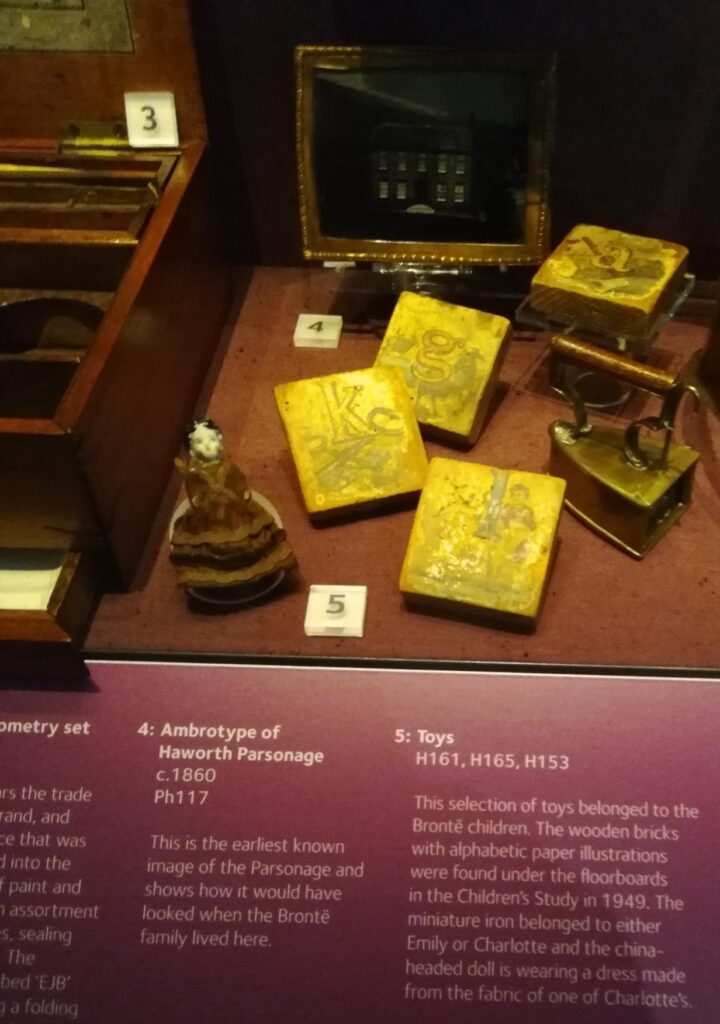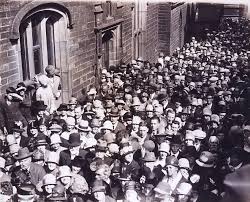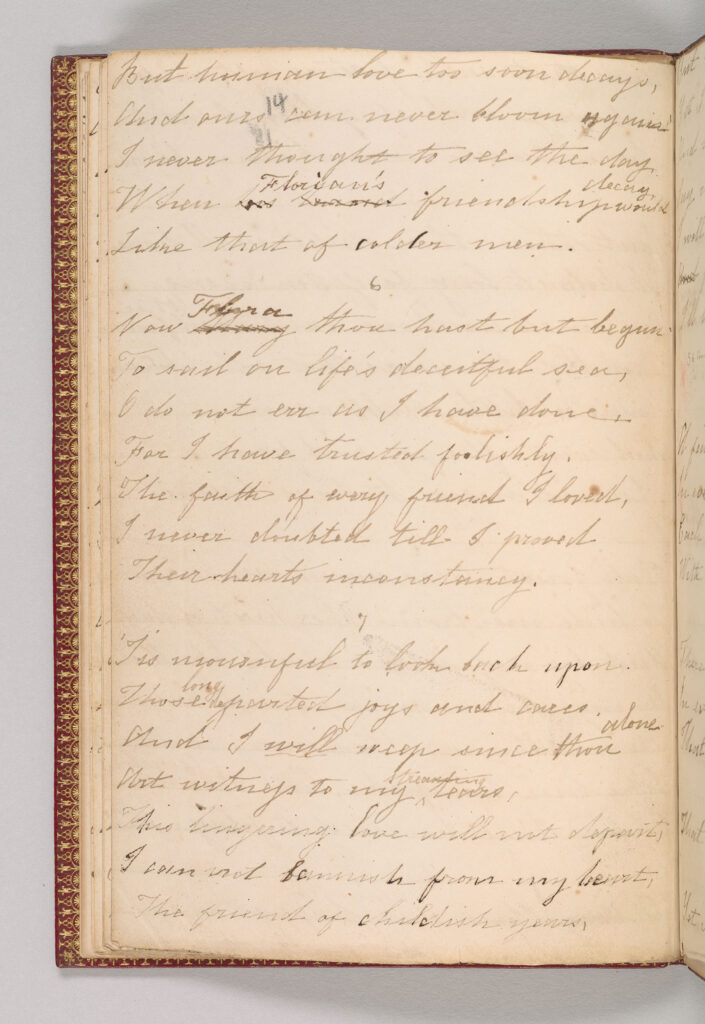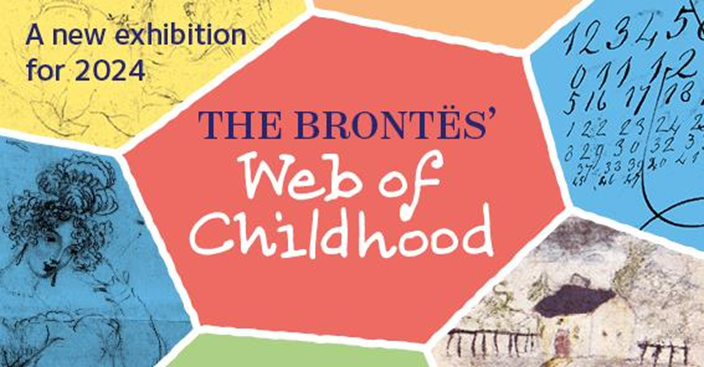February is a month that can bring snow, but it also brings snowdrops and the first signs of spring. It’s a month that brings the romance of valentine’s day and new life springing forth all around us. It’s also a month that brings new life to the Brontë Parsonage Museum in Haworth, and in today’s new Brontë blog post we’re going to look at a new poem which is particularly appropriate to the new parsonage exhibition.

The Brontë Parsonage Museum first opened its doors to the public in 1928, although there had been an earlier museum above the Penny Bank Museum in Haworth as well as an even earlier independent Brontë-themed museum within a house in Blackpool!
The Brontë Society are constantly searching for new Brontë-related items and artifacts, so their collection grows every year, with only a small percentage actually on display within the parsonage the Brontës knew so well, and the rest stored in a secure vault. The Parsonage Museum closes its doors in January each year, but its staff are far from resting during this time. In fact, this is the month when the collection is cleared, inspected and restored, and when a new exhibition is assembled ready for the museum re-opening at the start of February. Incidentally, I think it would be even better if the museum closed instead for the month of November and re-opened at the start of December, as its current schedule means that it’s always closed on Anne Brontë’s birthday on 17th January. Just a suggestion!

I once spoke to a museum volunteer who recalled, during one such January curation, opening a book which had once been in Charlotte Brontë’s collection. It had laid unopened, unseen for over a century yet within its pages she found a solitary hair – it seemed likely that this was the hair of Charlotte Brontë herself. What a simple everyday thing, and yet what a treasure to stumble across!
I’ve not yet been to the museum this year, but I certainly will be, and I look forward to bringing you a full report, with lots of pictures, then. I do know, however, that the theme of this year’s exhibition is ‘The Brontës’ Web Of Childhood’. It will explore their childhood, and the influences that led to their incredible outpourings of genius and creativity. This sounds like it will be a must-see exhibition, especially as it will contain items never before seen by the public.
In keeping with the current theme, I will leave you with one of Anne Brontë’s poems dealing with childhood. Anne was the youngest of six siblings, so she was the baby of the family receiving love and support from her sisters and brother. She was also, however, just a year old when her mother died, and so it was her aunt Elizabeth, Aunt Branwell, who became a de facto mother to her. Her poem ‘Verses To A Child’ is set firmly in the mythical land of Gondal she created alongside sister Emily Brontë, and it is even ‘signed’ by one of Gondal’s chief characters Alexandria Zenobia, but in it we see fragments of Anne’s views on children, childhood and her own infancy.

Above is a portion of the poem which follows in Anne’s own handwriting from her poetry notebook. I hope you can join me next week for another new Brontë blog post:
O raise those eyes to me again
And smile again so joyously,
And fear not, love; it was not pain
Nor grief that drew these tears from me;
Beloved child, thou canst not tell
The thoughts that in my bosom dwell
Whene’er I look on thee!
Thou knowest not that a glance of thine
Can bring back long departed years
And that thy blue eyes’ magic shine
Can overflow my own with tears,
And that each feature soft and fair
And every curl of golden hair,
Some sweet remembrance bears.
Just then thou didst recall to me
A distant long forgotten scene,
One smile, and one sweet word from thee
Dispelled the years that rolled between;
I was a little child again,
And every after joy and pain
Seemed never to have been.
Tall forest trees waved over me,
To hide me from the heat of day,
And by my side a child like thee
Among the summer flowerets lay.
He was thy sire, thou merry child.
Like thee he spoke, like thee he smiled,
Like thee he used to play.
O those were calm and happy days,
We loved each other fondly then;
But human love too soon decays,
And ours can never bloom again.
I never thought to see the day
When Florian’s friendship would decay
Like those of colder men.
Now, Flora, thou hast but begun
To sail on life’s deceitful sea,
O do not err as I have done,
For I have trusted foolishly;
The faith of every friend I loved
I never doubted till I proved
Their heart’s inconstancy.
‘Tis mournful to look back upon
Those long departed joys and cares,
But I will weep since thou alone
Art witness to my streaming tears.
This lingering love will not depart,
I cannot banish from my heart
The friend of childish years.
But though thy father loves me not,
Yet I shall still be loved by thee,
And though I am by him forgot,
Say wilt thou not remember me!
I will not cause thy heart to ache;
For thy regretted father’s sake
I’ll love and cherish thee.
